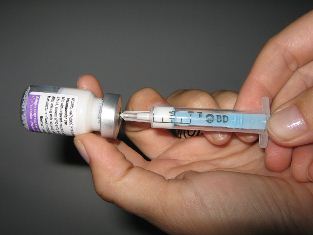 (CNN) -- Almost 1.2 million Americans living in the United States are HIV positive, but about 240,000 (or 1 in 5), don't know they are infected. That's because they have not been tested.
(CNN) -- Almost 1.2 million Americans living in the United States are HIV positive, but about 240,000 (or 1 in 5), don't know they are infected. That's because they have not been tested.
Today is the 18th National HIV Testing Day, where the Centers for Disease Control and Prevention (CDC) is recommending everyone between the ages 13 and 64 get an AIDS test.
The CDC says: "An HIV test is recommended once a year for people at increased risk -- such as gay and bisexual men, injection drug users, or people with multiple sex partners. Sexually active gay and bisexual men may benefit from more frequent testing (e.g., every 3 to 6 months)."
Founded in 1995 by the National Association of People With AIDS, the annual testing day is an effort to spread the word about the importance of knowing your HIV status. Frank Oldham, NAPWA's president and CEO, says so many people were lost in the early years of the epidemic that knowing your HIV status is the first step toward controlling the disease.
"We understood that getting tested for HIV makes a huge difference in fighting HIV, treating it early, preventing spread of the disease and reducing stigma," said Oldham.
He says the fact that more than 20% of people who are HIV positive don't know it, "underscores the urgent need for increased testing and immediate connection to care for those who test HIV-positive. Now in our 19th year of NHTD, we recognize that barriers to HIV testing, treatment and prevention persist but we remain committed to overcoming them through empowerment and education in communities across America."
In May a Food and Drug Administration advisory committee voted unanimously in favor of the first ever over-the-counter HIV rapid test kit. The OraQuick In-Home HIV Test is an oral test that provides results in 20 minutes and is more than 99% accurate. It is still pending FDA approval and could be on store shelves within months.
There are approximately 50,000 new HIV infections in the United States each year.
Three years ago the Obama Administration launched a national campaign called Act Against AIDS. The goal was to raise awareness, increase testing, and reduce infections in the hardest hit population like gays and African-Americans.
On this National HIV Testing Day the CDC is calling on individuals, health care providers and state and local health departments to get involved to help reduce transmission of the virus and promote testing.
Portland and Seattle
Free Subscription to Breaking News
Free Subscription to Breaking News


















































































































































































































































































































































